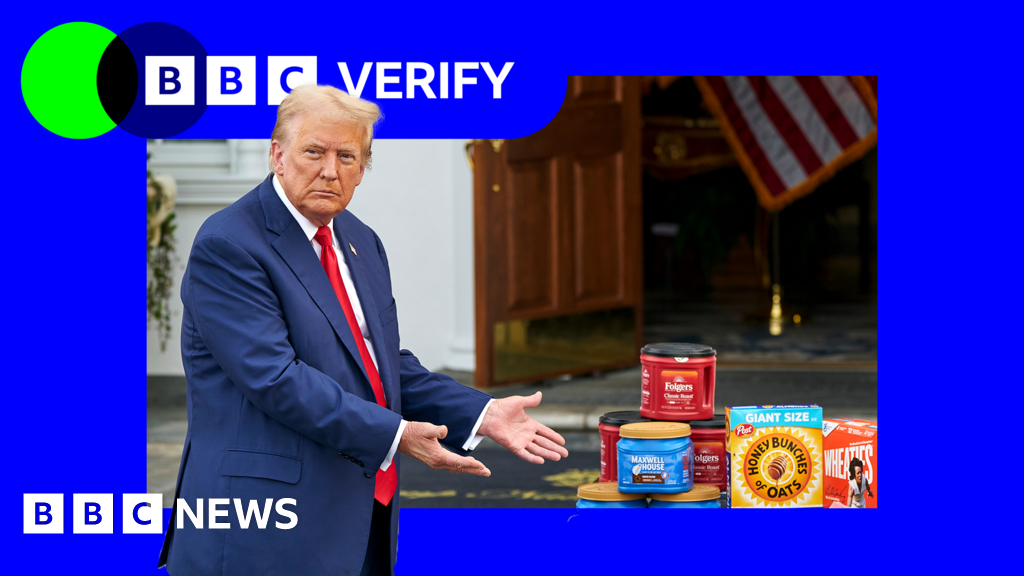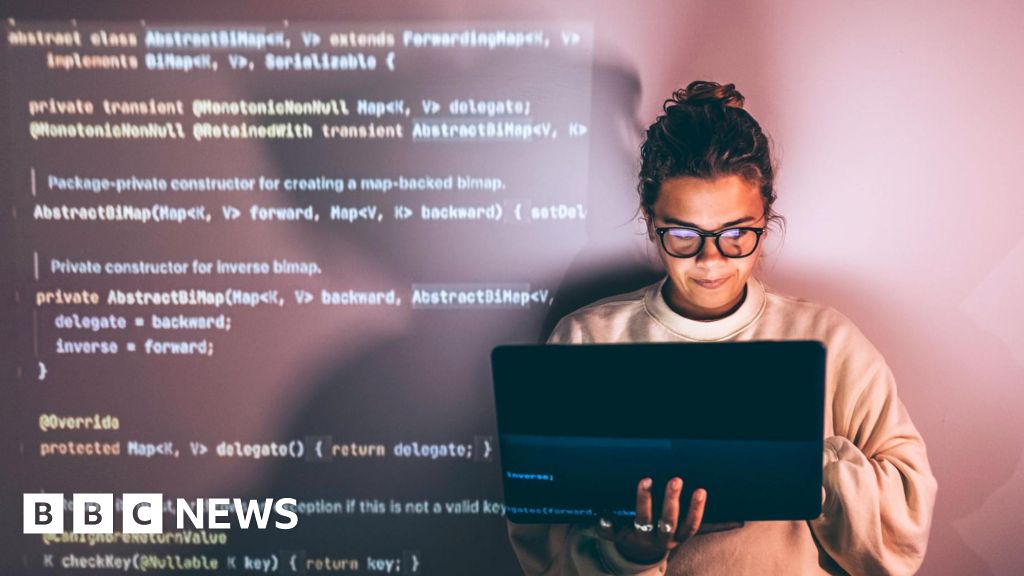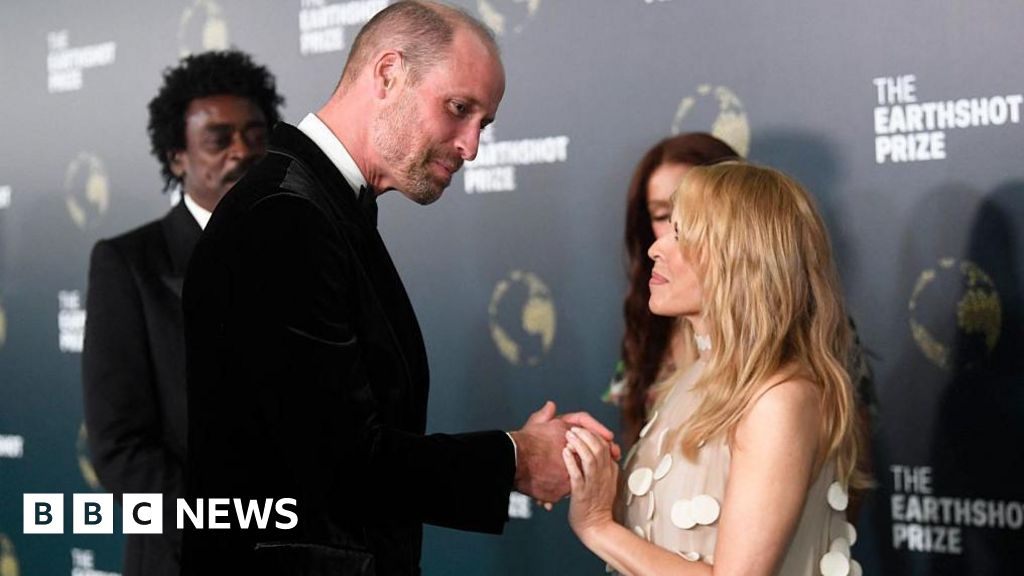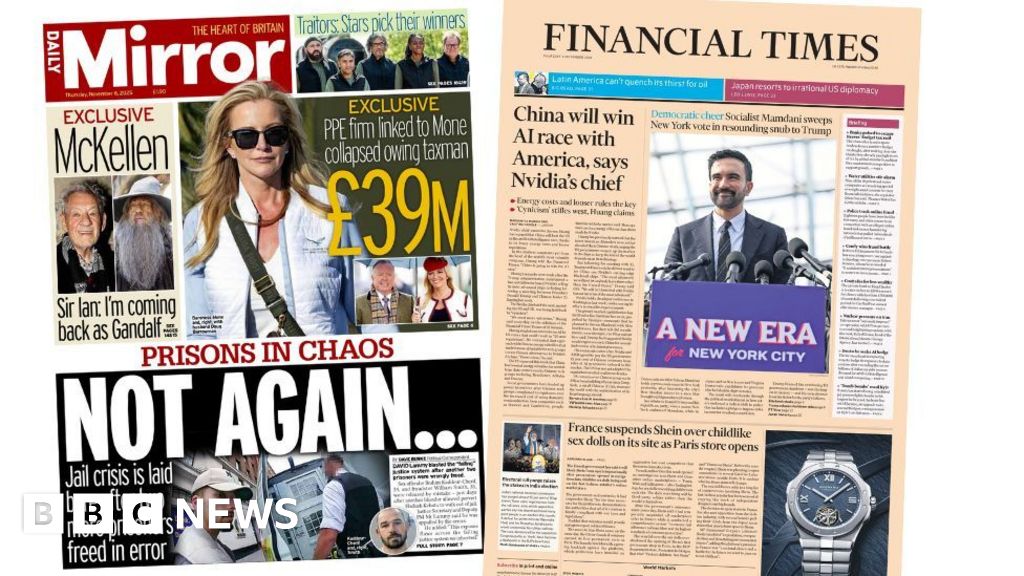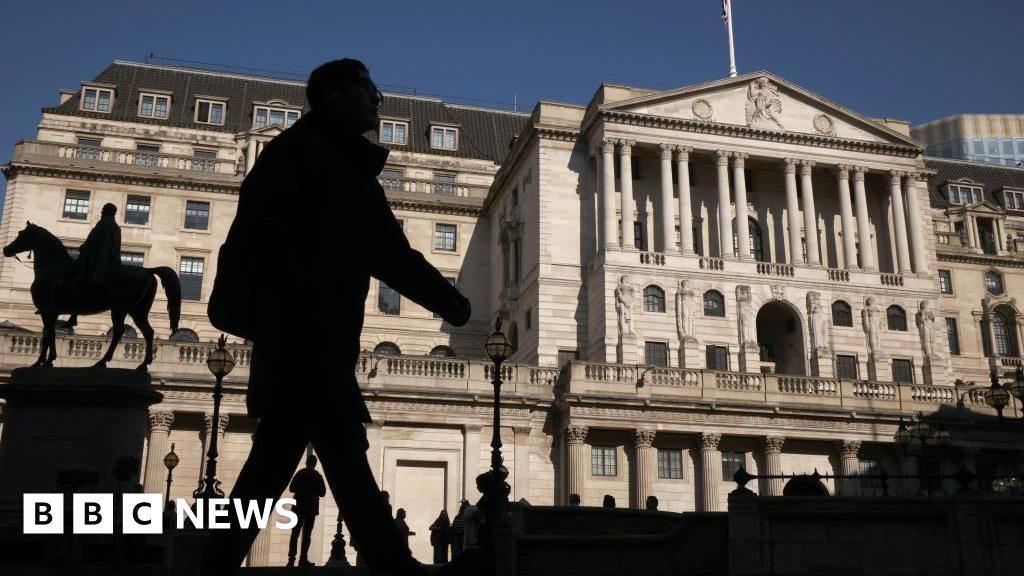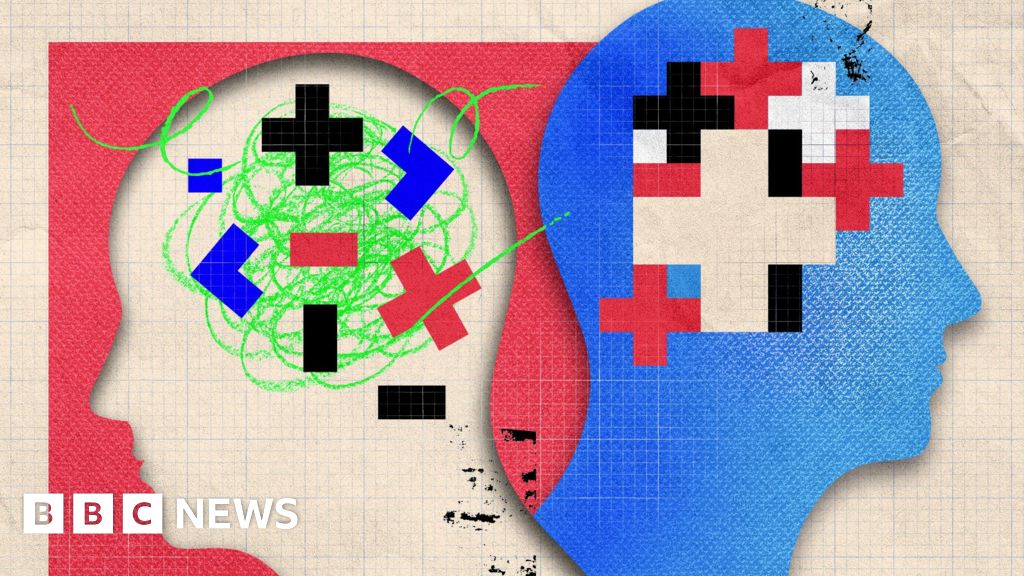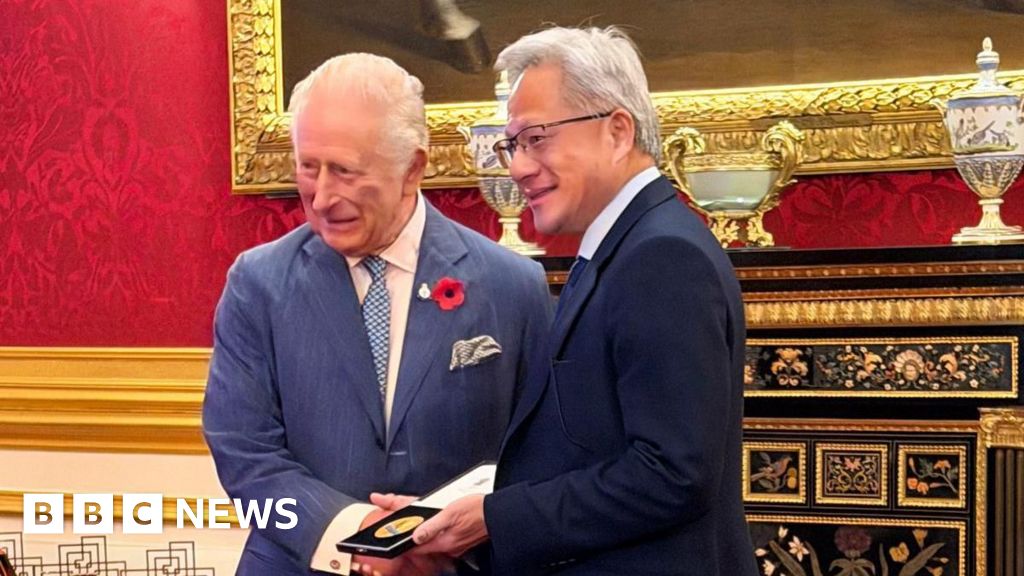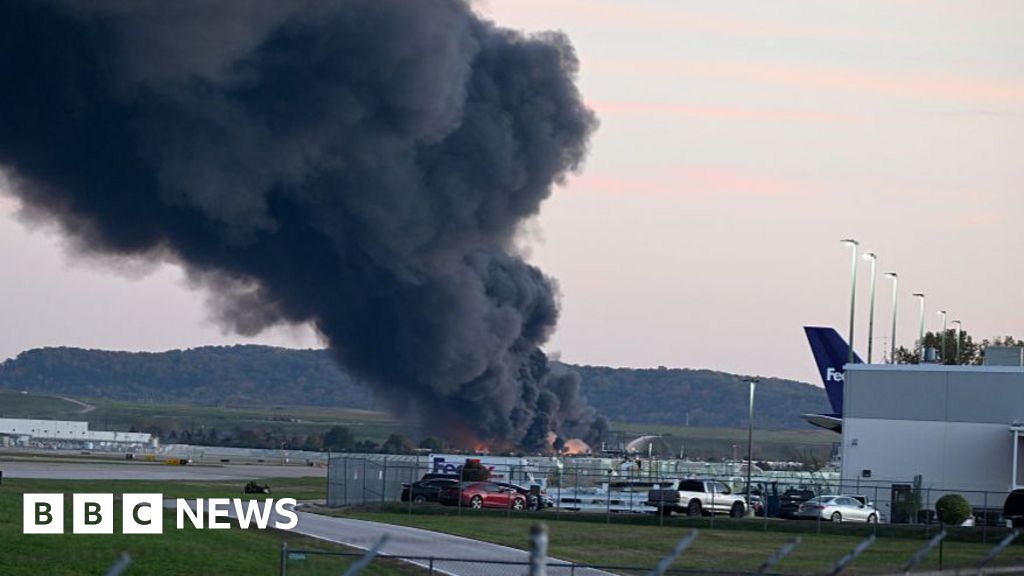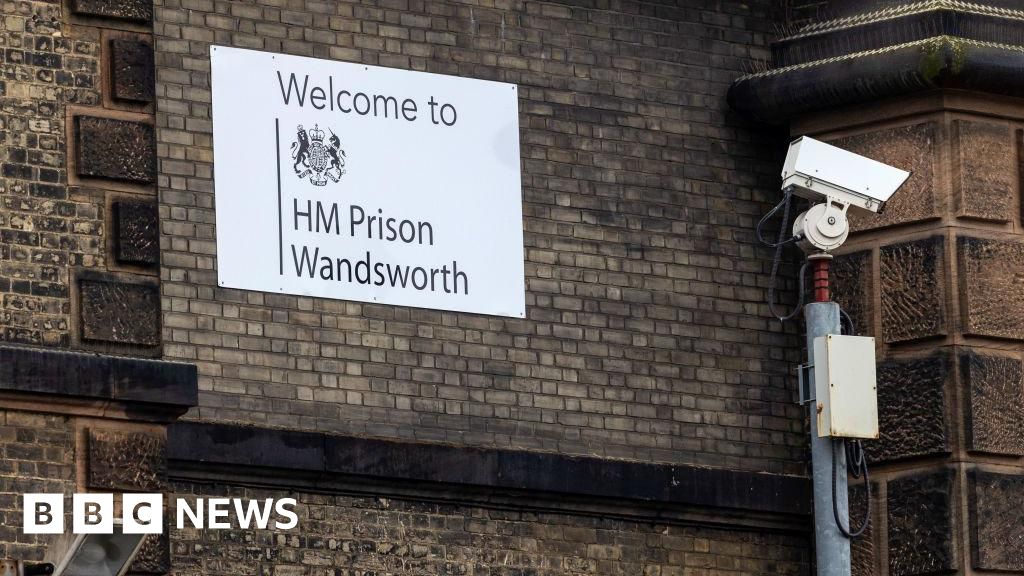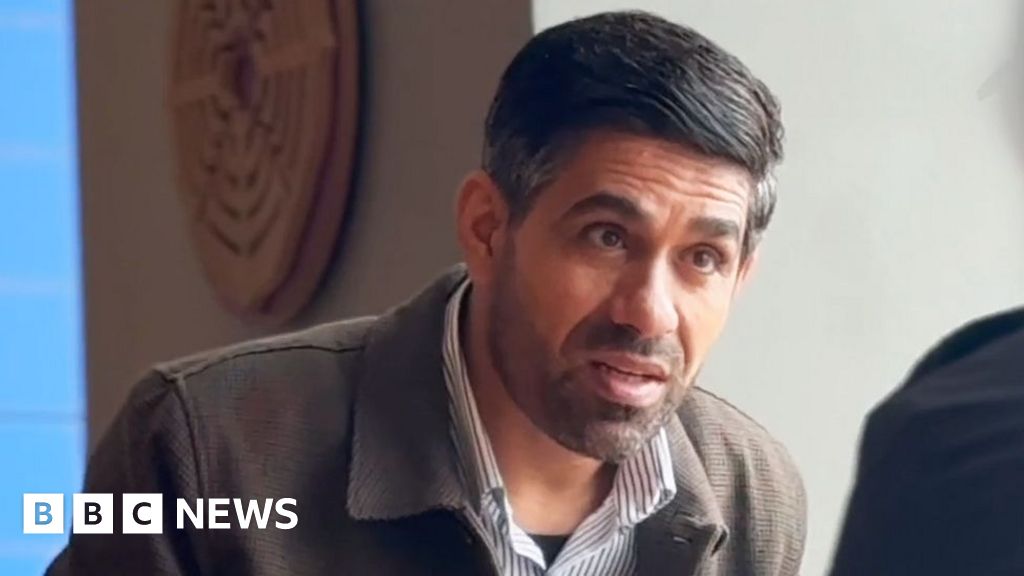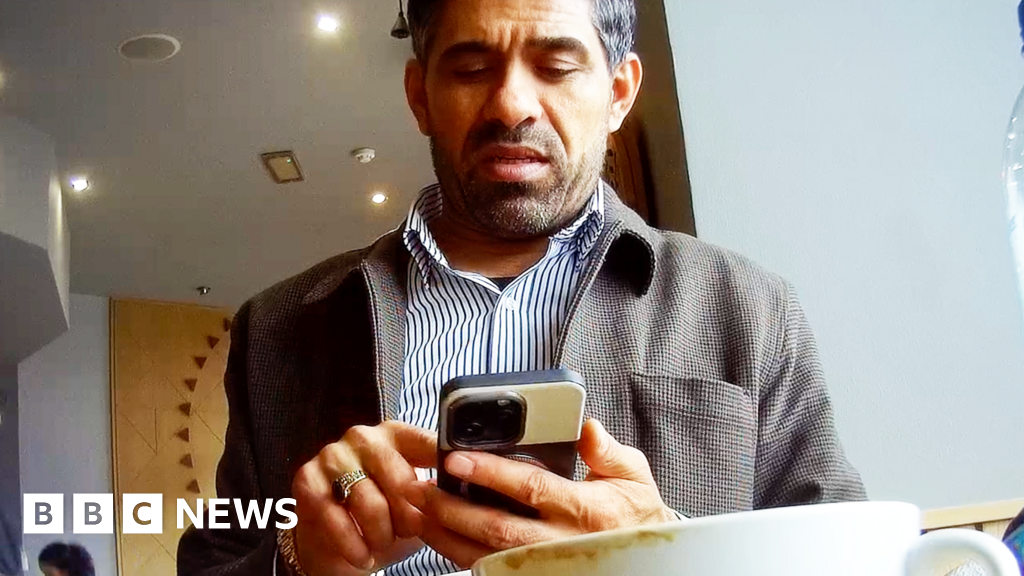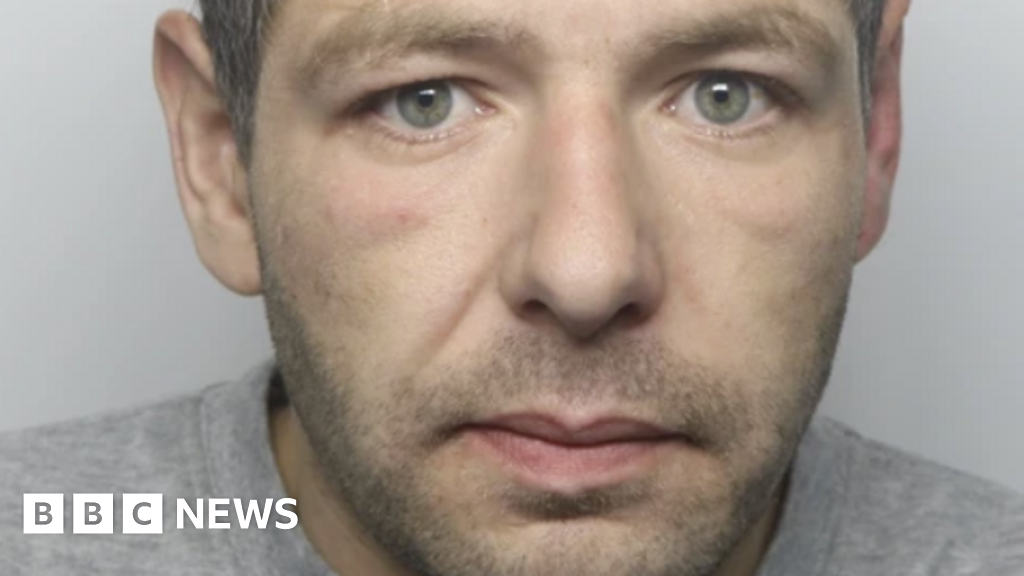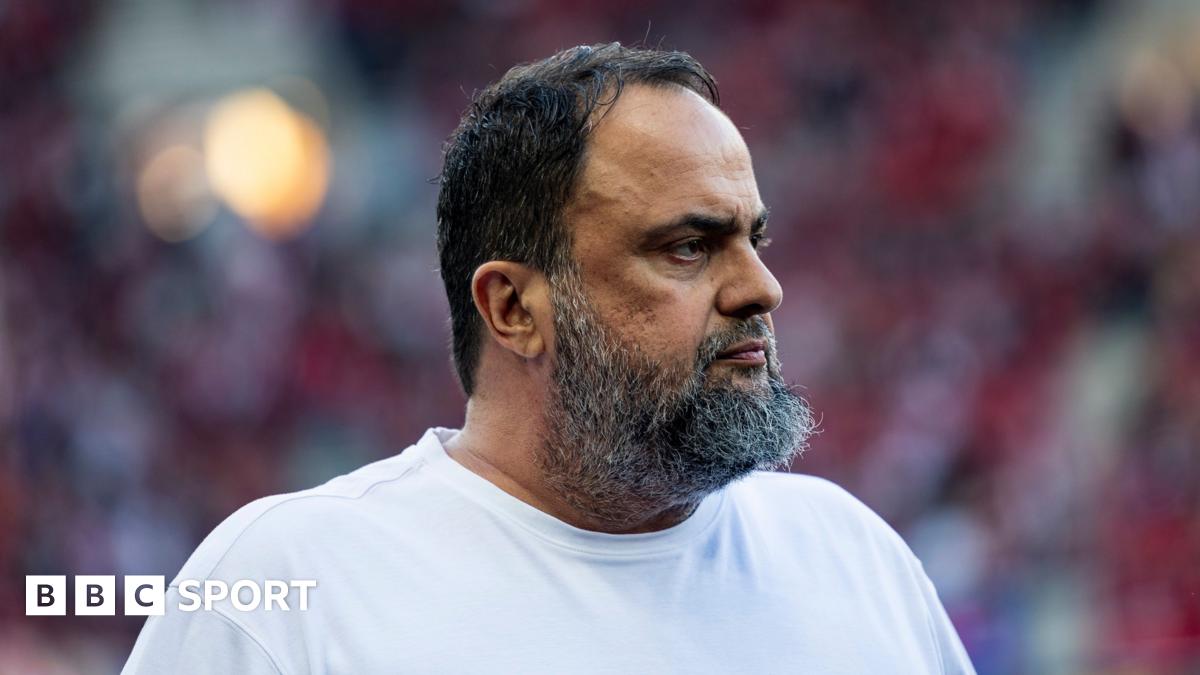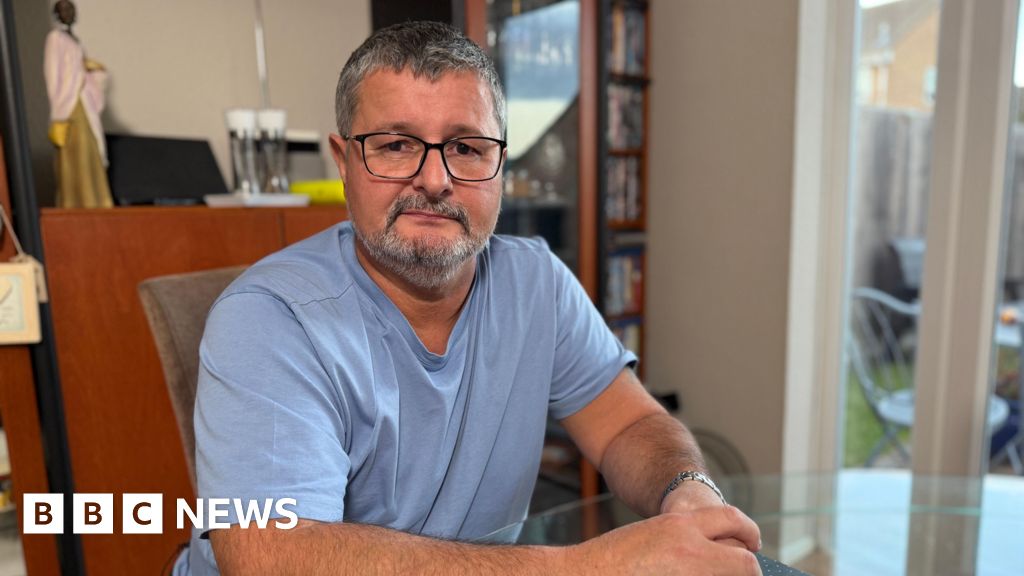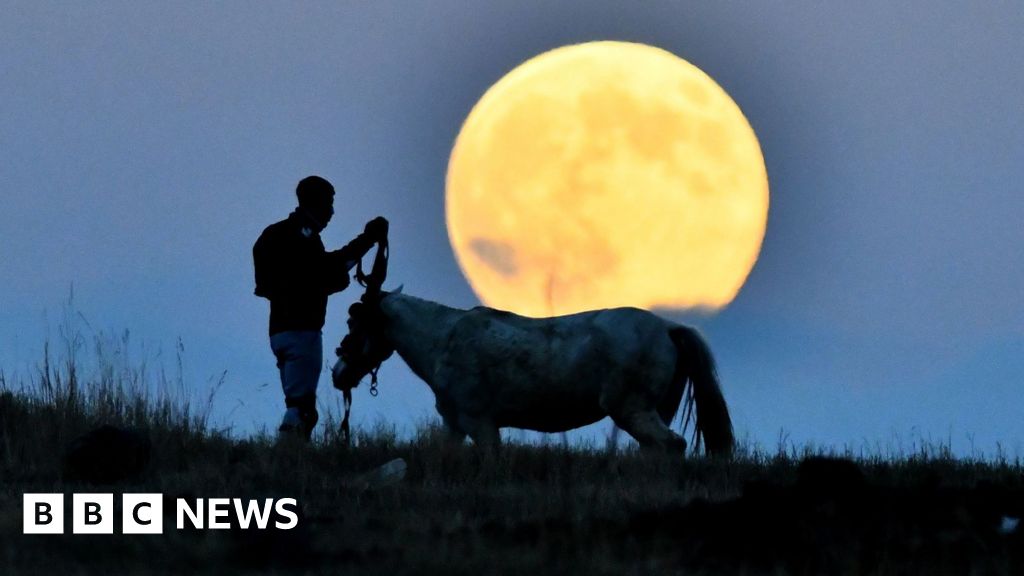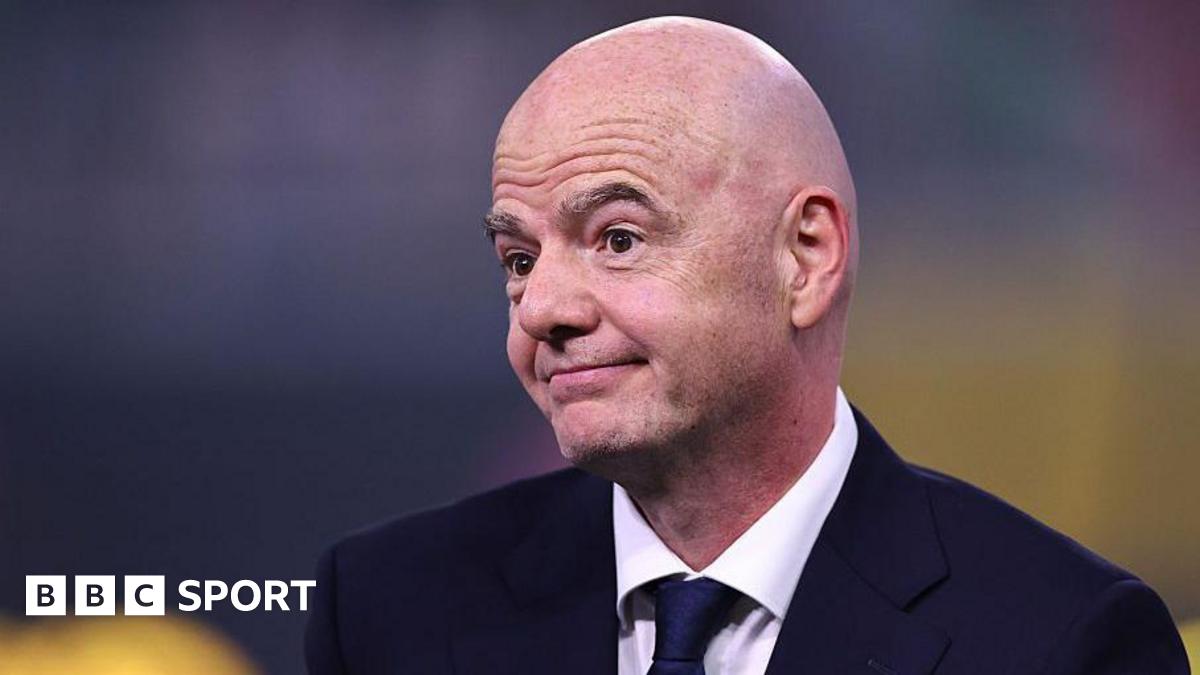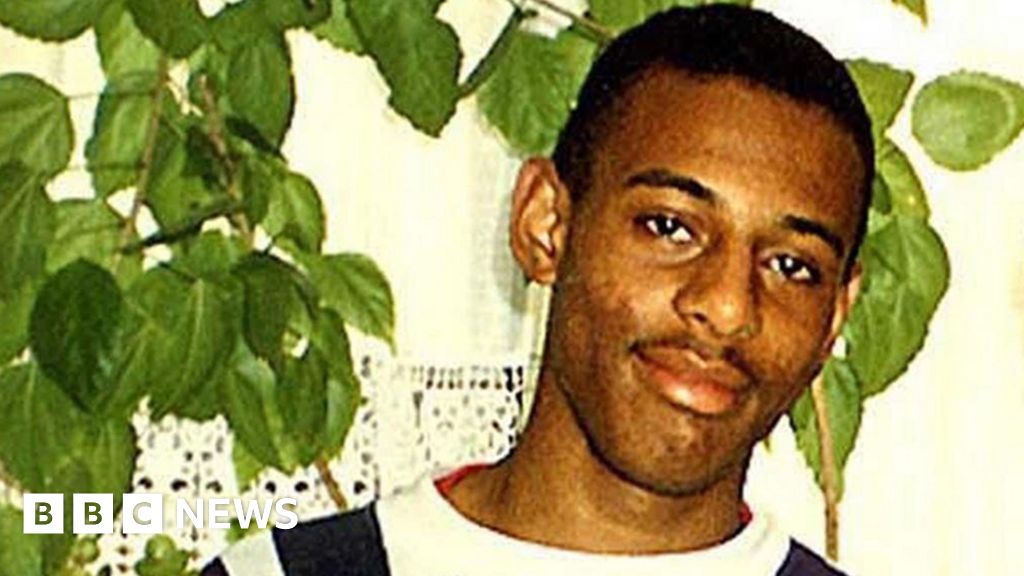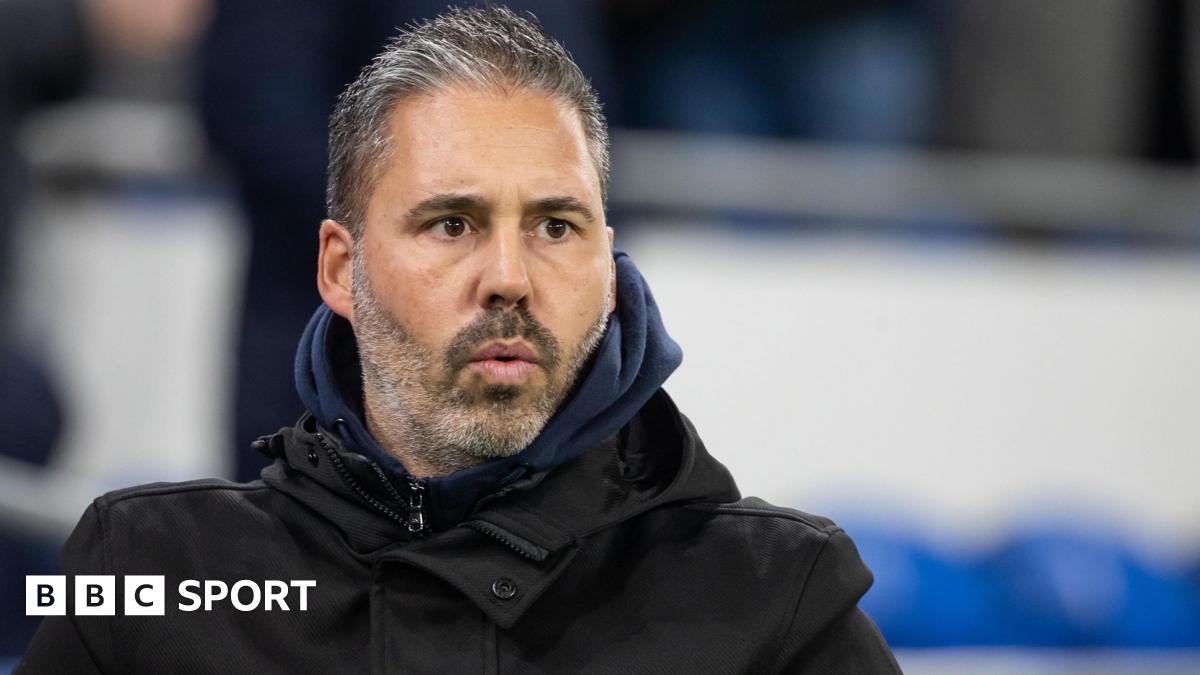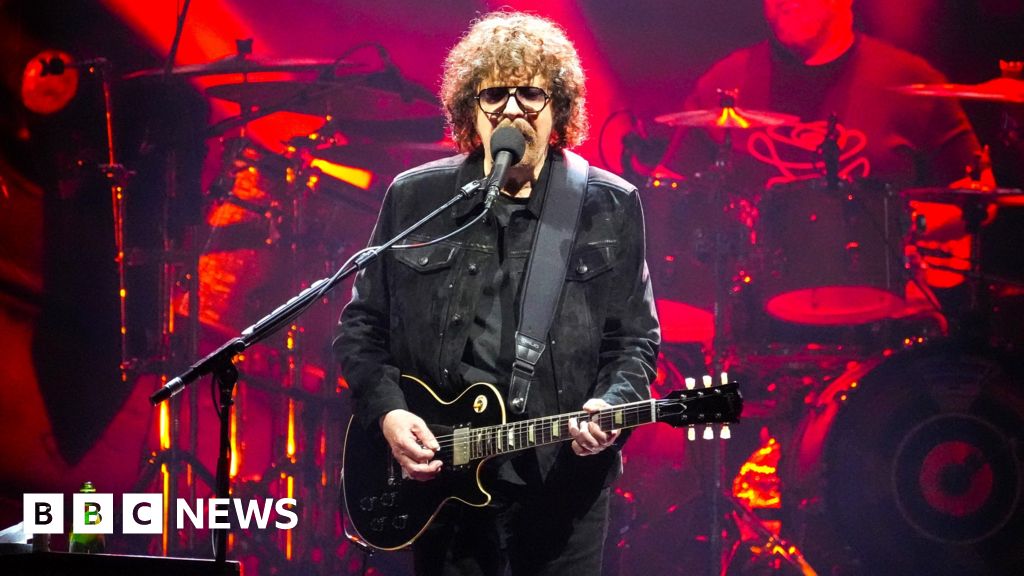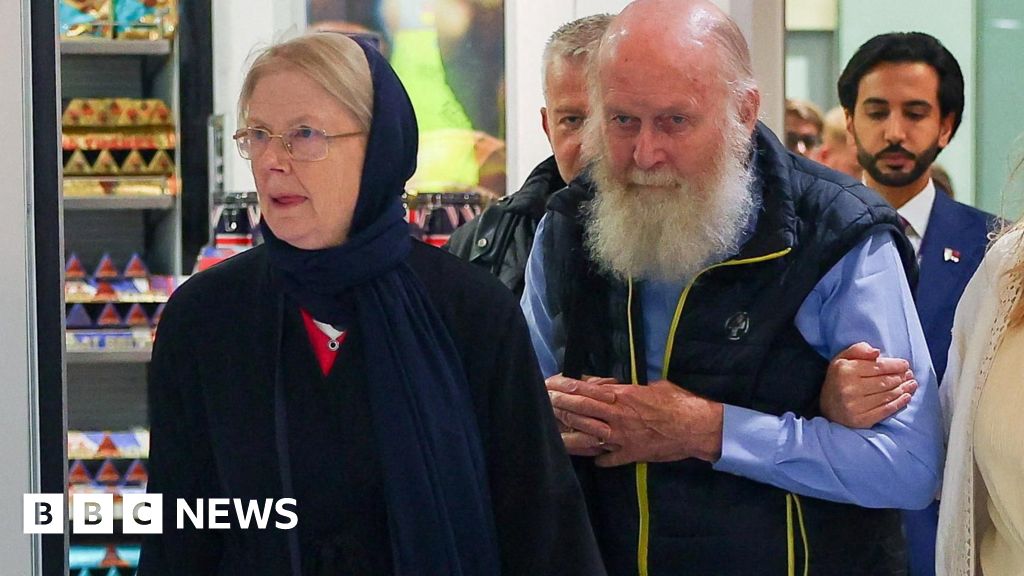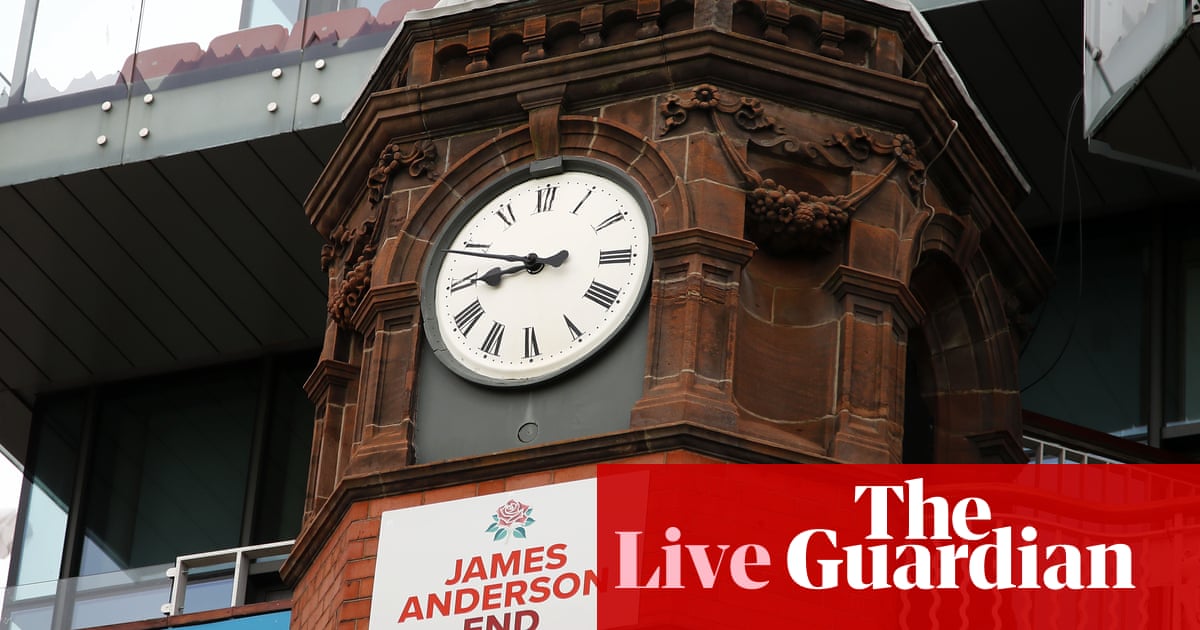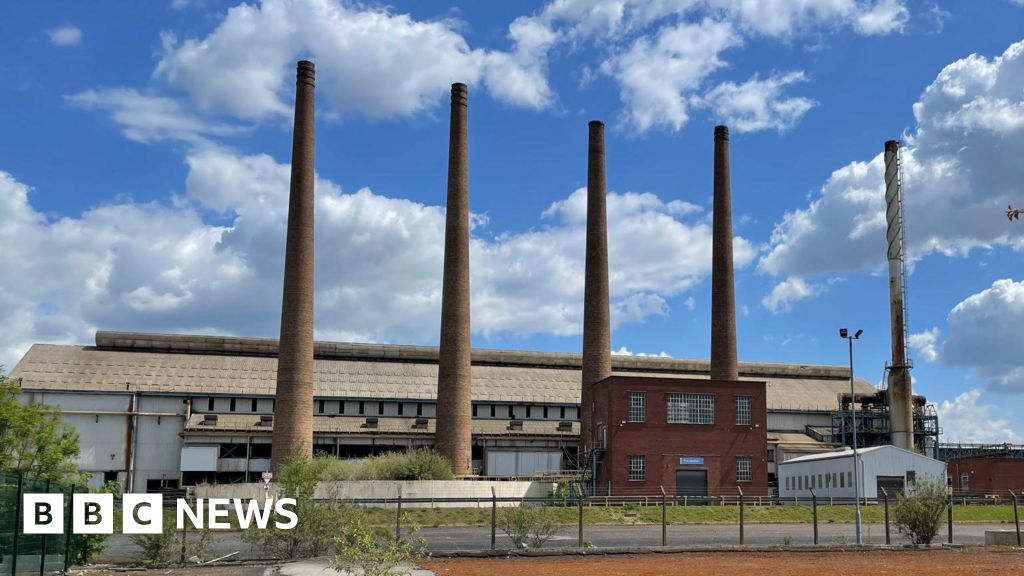
 Nick Robinson
Nick Robinson

 BBC
BBC
"At what point did we become North Korea?" That was the question Nigel Farage posed when asked by a US congressional committee about limitations on freedom of speech in the UK.
He was condemning the "awful authoritarian situation we have sunk into", which he claimed had led to various arrests including that of Father Ted co-creator Graham Linehan over his views on challenging "a trans-identified male" in "a female-only space".
When I heard the question, I confess I thought that the leader of Reform UK had gone over the top.
Farage was comparing his country - my country - with a brutal dictatorship that murders, imprisons and tortures opponents.
And he was doing it in front of an influential audience of American lawmakers.

 Lucy North/PA Wire
Lucy North/PA Wire
'I don't regret anything I've tweeted,' Graham Linehan said earlier this month
When I interviewed his deputy, Richard Tice on Radio 4's Today, I asked him whether he really believed that UK Prime Minister Sir Keir Starmer was the same as North Korean leader Kim Jong Un.
Three times I asked the question. Three times Tice swerved it, suggesting Farage was simply using "an analogy".
But Farage is not alone in questioning how far restrictions to freedom of speech have gone in the UK.
Tensions around the limits of free speech are nothing new and since the advent of social media in the mid-2000s, the arguments have been simmering.
Now, though, they're reaching a boiling point.

 BENJAMIN CREMEL/AFP via Getty Images
BENJAMIN CREMEL/AFP via Getty Images
Farage lambasted the 'awful authoritarian situation we have sunk into'
During his recent visit, US Vice-President JD Vance said he did not want the UK to go down a "very dark path" of losing free speech.
The US business magazine Forbes carried an editorial this month that took this argument further still.
In it, editor-in-chief Steve Forbes condemned the UK's "plunge into the kind of speech censorship usually associated with tin pot Third World dictatorships".
He argues that, in stark contrast to the United States - where free speech is protected by the first amendment to the constitution, "the UK has, with increasing vigour, been curbing what one is allowed to say, all in the name of fighting racism, sexism, Islamophobia, transgenderism, climate-change denial and whatever else the woke extremists conjure up".
So, how exactly did we get to the point where the UK is being compared to a dictatorship and, given how inflamed the conversation has become, what - if anything - would it take to turn down the heat?
Big tech dialled up the debate
The case of Lucy Connolly has become a cause celebre to some in the UK and beyond.
The former childminder from Northampton, who is married to a Conservative councillor, had posted an abhorrent message on X, calling for people to "set fire" to hotels housing asylum seekers following the murder of three young girls at a dance class in Southport in July 2024.
It was viewed hundreds of thousands of times at a time when the threat of violence was very real.

 Police/PA Wire
Police/PA Wire
Lucy Connolly was jailed for 31 months after calling for hotels housing asylum seekers to be set on fire
Connolly had pleaded guilty to inciting racial hatred by publishing and distributing "threatening or abusive" written material on X. And yet she was given the red carpet treatment at the Reform party conference, as "Britain's favourite political prisoner".
The length of her prison sentence - 31 months although she only served 40% before she was released - was questioned by many, including people who were appalled by what she had written.
It is just one case that highlights how much social media has changed the shape of the debate around free speech and made heroes and villains of ordinary people.
And I use the word "ordinary" deliberately because views similar to Connolly's will have been expressed up and down the land by others who might well have said, as she now does, "I was an idiot".
But while it's unlikely that any action would have been taken had she said what she did in a coffee shop or a bar, the fact she posted it on social media changed things.

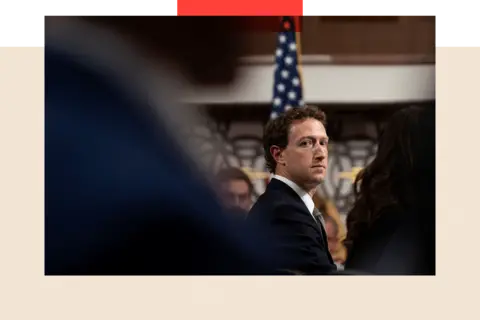 ROBERTO SCHMIDT/AFP via Getty Images
ROBERTO SCHMIDT/AFP via Getty Images
Facebook founder Mark Zuckerberg has changed the rules for Facebook and Instagram
What's more, big tech firms have changed their approach in recent years.
After Musk bought Twitter, which he re-named X, he changed content moderation, which he regards as "a propaganda word for censorship" - and he talks a lot about people spreading "the woke mind virus".
Facebook founder Mark Zuckerberg has also changed the rules governing Meta and Instagram.
In the case of Connolly, her post was "accelerated by the algorithm" and spread far more widely, according to Lilian Edwards, an emeritus professor at Newcastle University.
Dilemma around policing speech
The arrest of Graham Linehan at Heathrow, too, raised further questions around policing freedom of speech - and put the way issues are handled under renewed scrutiny.
Commissioner of the Metropolitan Police Sir Mark Rowley has voiced his own concerns. "It's a nonsense to pretend that with all of the (online) content out there that enforcement is the answer to that," he has said.
What these cases both illustrate is the lack of consensus about what can and should be policed online in the UK, and by who.
And a lack of consensus too about how we can set apart the unpleasant, offensive, ugly and hateful things said online from those that are genuinely threatening or dangerous.

 PA
PA
Sir Mark Rowley: 'It's a nonsense to pretend that with all of the content out there that enforcement is the answer'
In the UK, the Human Rights Act does give protection to free speech but as a "qualified right".
This means that "governments can restrict that right… provided that the response is proportionate - [or] 'necessary in a democratic society' is what people tend to say", according to Lorna Woods, professor of internet law at the University of Essex.
But some of the comments made at the protest in London earlier this month, billed by far-right, anti-Islam activist Tommy Robinson as a "free speech rally," demonstrate that, despite other controversies, that right isn't that qualified.
Like nailing jelly to the wall
"Violence is coming" and "you either fight back or die", the billionaire X owner Elon Musk told flag-waving protesters via video link.
Along with his call for the overthrow of the government, some might argue that his words at the rally were an incitement to violence.
But the UK's independent reviewer of terrorism legislation, the barrister Jonathan Hall KC, has said that Musk's words would not have broken the law.
"Politicians use martial language all the time, don't they?" he told BBC Radio 4's Today. "Metaphors such as fights and struggles are pretty normal. And he was talking about it contingently, wasn't he? He wasn't saying: 'Go out immediately.'"

 Reuters
Reuters
Musk called moderation "a propaganda word for censorship"
Yet the fact both men were able to address a huge crowd in London is perhaps evidence that there is rather more leeway for free speech in this country than those likening the UK to a "tin pot dictatorship" suggest.
According to Essex University's Prof Lorna Woods, the lowest level of views that can be prosecuted in British criminal law are those deemed "grossly offensive or of an indecent, obscene or menacing character".
These are concepts that few people without a law degree could easily define, let alone agree upon.
It is the job of the police initially, but ultimately the courts, to try to nail that particular piece of jelly to the wall.

 Universal History Archive/Universal Images Group via Getty Images
Universal History Archive/Universal Images Group via Getty Images
Former deputy PM Sir Nick Clegg says the the UK is "out of whack" with other countries on free speech
The UK is "out of whack" with other countries, according to Sir Nick Clegg, the former deputy prime minister who later became right-hand man to Zuckerberg. He believes the UK needs to "think long and hard" about "whether we've overdone it" on policing speech.
"Surely part of the definition of being in a free society is people say ghastly things, offensive things, awful things, ugly things, and we don't sweep them under the carpet," he has said.
Free speech versus 'me speech'
What the British public want is another story.
Earlier this month, in a survey by YouGov, 5,035 British adults were asked what was most important when it came to online behaviour: 28% said it was that people were able to express themselves freely but 61% prioritised keeping them safe from threats and abuse.
"People tend to prefer safety to free speech [online]," argues Anthony Wells, a director at YouGov.
What's more, there seems to be a generational divide.

 Mark Kerrison / Getty Images and SOPA Images / Getty Images
Mark Kerrison / Getty Images and SOPA Images / Getty Images
In a new YouGov survey, 61% of Britons said keeping people safe online was more important than absolute free speech
In my conversations with young people in their 20s and 30s - the age of my own children - I often hear the view that far from being an ideal to be strived for, free speech is the cause of much of the anger, division and fear they live with every day.
In recent years a "cancel culture" has emerged in which those with "unacceptable" views can be hounded out of their jobs, no platformed as speakers or intimidated as students.
Even back in 2021, a YouGov poll of Britons found that a majority of those surveyed - some 57% - had sometimes stopped themselves from expressing political or social views because of the fear of being judged or negative responses.
For those who believe that free speech is under threat in the country, these figures can be used as evidence that decades of political correctness has had a chilling effect on people's ability to express their opinions.
"Our definitions of what constitutes hate speech, and I think a very broadened definition of what constitutes harm, is meaning that people feel like they are walking on eggshells and they're frightened - not just that they'll have the police around, but that they'll be cancelled if they say the wrong thing," the former Brexit Party MEP Baroness Claire Fox told the BBC's The World Tonight.
But dig deeper and this debate, like so much else, is also about politics and the deepening and, increasingly, angry and violent divisions in our society.
What can America teach us?
Even with its constitutional protection for free speech, plenty in the UK question what basis Americans have to lecture Britain on free speech, given the arguments they are having back at home.
The anger and division sparked by the assassination of the conservative firebrand Charlie Kirk in Utah this month ramped up the debate further on that side of the Atlantic over where the boundaries should lie between what is offensive, hateful and dangerous.

 Michael Le Brecht/Disney via Getty Images
Michael Le Brecht/Disney via Getty Images
ABC has suspended talk-show host Jimmy Kimmel over comments about the killing of right-wing influencer Charlie Kirk
Trump's Attorney General Pam Bondi appalled many conservatives when she declared that, "There's free speech and then there's hate speech".
It seemed to take her into precisely the territory, which has caused so many problems here in the UK.
President Trump himself has threatened to sue the New York Times for $15bn (£11bn) over what he calls defamation and libel, adding to the long list of media outlets he has taken to the courts over stories - the newspaper has called it "intimidation tactics" - and he celebrated the sacking of the late-night TV host Jimmy Kimmel as "great news for America".
The US historian Tim Snyder, who is an outspoken public critic of the direction America is heading under Trump believes that free speech should be distinguished from what he calls "me speech".

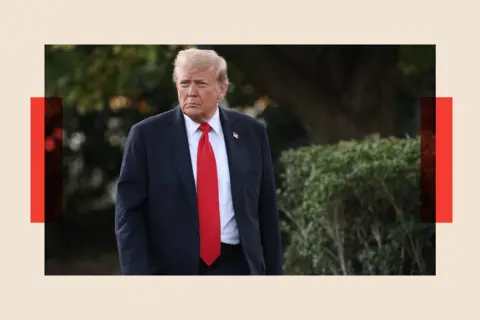 Win McNamee/Getty Images
Win McNamee/Getty Images
Trump has threatened to sue the New York Times for $15 billion
"Me speech is a common practice among rich and influential Americans," writes Mr Snyder. "Practitioners of me speech use the phrase free speech quite a bit.
"But what they mean is free speech for themselves. They want a monopoly on it.
"They believe that they are right about everything, and so they should always have giant platforms, in real life or on social media.
"The people with whom they disagree, however, should be called out and intimidated in an organised way on social media, or subjected to algorithmic discrimination so that their voices are not heard."
As much about listening
This issue is one I've felt strongly about for as long as I can remember. My grandparents knew first hand what it was to be persecuted for who you were and what you thought or said. They were German Jews who fled the Nazis for what then was the relative security of China and later had to flee the Communists there.
As a child, I recall watching in reverential silence as each day, after lunch, my grandfather held a huge radio on his lap and turned the dial, skipping stations until he found the BBC World Service. There, he had learned, he would find news he could trust and speech which was free of political control.
So important was this to him that he had risked hiding with his wife and daughter (my mother) in a cupboard in their home in Shanghai to listen to it on a banned shortwave radio.

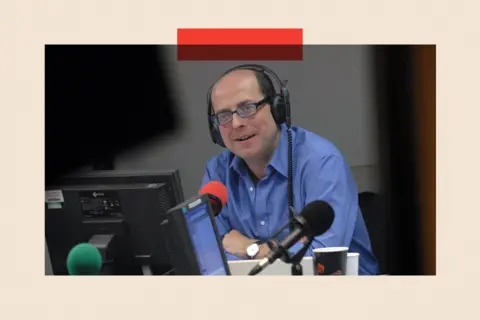
Nick says he finds it hard to accept comparisons between the UK and a dictatorship
That is why I find any comparison between the UK and a dictatorship a little hard to swallow.
What I learned as the grandchild of those who had fled not one but two murderous ideologies was that free speech was about listening as much as talking.
What mattered above all else is being able to hear both sides of an argument and learn the facts behind them - without having that information controlled by governments, rich and powerful media owners, or anyone else.
Nick Robinson is presenter of BBC Radio 4's Today programme and Political Thinking.
Top image credit: Carlos Jasso / Getty Images
BBC InDepth is the home on the website and app for the best analysis, with fresh perspectives that challenge assumptions and deep reporting on the biggest issues of the day. And we showcase thought-provoking content from across BBC Sounds and iPlayer too. You can send us your feedback on the InDepth section by clicking on the button below.
.png)
 1 month ago
24
1 month ago
24
